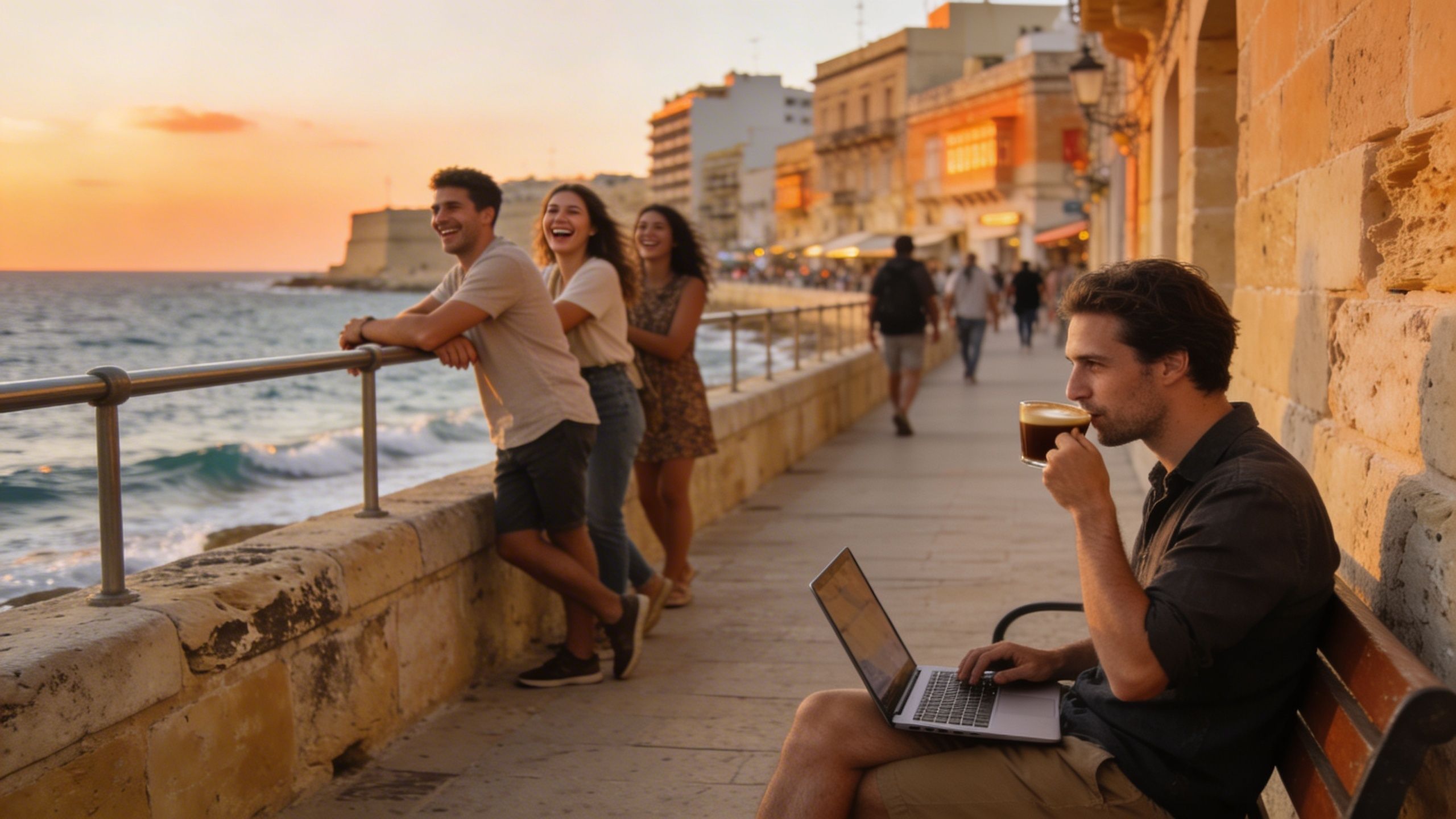Greece Money Moves: Mortgages, Banks & Lifestyle Hacks
Greece offers nomadic lifestyle magic with realistic mortgage options — expect higher down‑payments for non‑residents and use local experts to turn island dreams into safe purchases.
Imagine sipping an espresso on a sunlit corner of Plaka, then closing a laptop and wandering down to the Acropolis overlook — that slow, golden-late-afternoon rhythm is the everyday magic of Greece. For many nomads and remote workers, Greece pairs unbeatable lifestyle perks (sea, food, community) with surprisingly pragmatic finance choices — but you need local knowledge to avoid money mistakes.
Living the Greece life: streets, seasons and daily rhythms

Greece moves at two tempos: breezy island days (Mykonos terraces, late dinners) and urban Athens mornings (espresso, coworking, quick grocery runs at Varvakios market). Winters in Thessaloniki bring rich cafe culture and quieter co-living scenes. Picture island fishermen selling morning catch at Naxos harbors, a neighbourly kafeneío on an Athens laneway that knows your name, and golden hour walks on Kalamata’s waterfront — that sensory life shapes what kind of property you’ll want.
Neighborhood snapshot: Athens — Psyrri to Koukaki
Walkable Psyrri hums with bars and studios; Koukaki balances local life with easy Acropolis access. If you crave cafes, fast fibre and coworking, central Athens neighbourhoods give you neighbourhood buzz plus short commutes. Note: policy shifts around residency-by-investment (the Golden Visa) have changed which districts are considered ‘prime’ for investment — that affects pricing in Attica and the islands.
Island life: why Naxos, Crete and Corfu feel different from Santorini
Santorini and Mykonos are postcard-perfect — and correspondingly pricier and subject to tighter Golden Visa thresholds. Contrast that with Naxos or many parts of Crete: local markets, year-round communities, and more realistic price-per-square-metre for long-term living. If you want seasonal bustle but a quieter base, pick a smaller island with ferry links rather than the Instagram hotspots.
- Lifestyle highlights to scout in person
- Morning espresso at a kafeneío (Plaka or Chania market stalls)
- Weekly farmers’ market — buy cheeses, olives and fresh greens directly from producers
- A coworking day in Athens (check out hubs in Kifisia or Monastiraki)
- Afternoon swim and sunset walk on a nearby beach (Zakinthos or Elafonissi in Crete)
Making the move: practical money, mortgage and banking truths

The dream (seaside terrace, morning markets) collides with paperwork — but the good news is: Greek banks do lend to foreigners. Expect stricter underwriting, higher down payments, and documentation requirements. Rates have settled into a mid-single-digit band for many borrowers, but LTV and approvals differ for EU vs non-EU applicants. Use local data and bank contacts to get realistic pre-approval before you fall in love with a place.
Mortgage reality: what to plan for
Practical numbers matter: many lenders request 30–40% down from non-residents; LTVs of 60–70% are common depending on nationality and property type. Expect interest rates tied to Euribor plus a margin or fixed-rate options for 3–10 year periods. Banks require an AFM (Greek tax number), a Greek bank account, translated financials, and proof of stable income.
Work with these local helpers
A bilingual mortgage broker, a Greek-law specialist and an accountant who understands cross-border taxation will save you weeks and serious stress. Agencies can line up bank contacts and valuation reports; lawyers protect against title surprises common with older island properties. Think of agents as your lifestyle scouts — they’ll match a neighbourhood’s vibe with financing that makes sense.
- Step-by-step finance checklist before making an offer
- 1. Get a rough affordability number in your home currency and open a Greek bank account.
- 2. Apply for AFM (Greek tax number) and pre-qualify with a bank or broker — ask about LTV for non-residents.
- 3. Budget 10–15% for fees (notary, lawyer, transfer tax/ENFIA) and a 20–40% down payment depending on your status.
- 4. Lock exchange rate strategy for transfer of funds (work with a specialist FX provider to save on conversions and fees).
Insider knowledge: myths, seasonal tactics and expat lessons
Myth: 'Greece is only cheap on islands.' Truth: pockets of value exist in mainland cities and less-touristed islands — and policy shifts (like the 2024–25 Golden Visa thresholds) have reshuffled what’s expensive. That means a shrewd buyer can find year-round villages with low purchase prices and strong lifestyle upside.
Seasonal house-hunt hack
Summer shows a showier Greece — restaurants full, prices peaking in hotspots. Try late autumn or winter for realistic market behaviour: you’ll meet serious sellers, see how neighbourhoods live off-season, and often negotiate a better price. Bring waterproof shoes and expect some closed shutters — but that quieter view reveals true community life.
What expats wish they'd known
1) Budget for bureaucracy time: legal checks and bank approvals often take longer than expected. 2) Learn a few Greek phrases — neighborhood owners warm up fast. 3) Use an agent who actually lives in the area you love, not a remote salesperson. These small choices protect both your lifestyle and investment.
- Local red flags to watch for
- Missing or inconsistent title deeds (ask your lawyer to confirm registry extracts)
- Unusually high promised rental yields with short‑let reliance (local rules and Golden Visa limits can restrict short-term rentals)
- Properties that need heavy renovation but lack permits — budget extra for approvals
Quick data & sources we used
We cross-checked bank lending guides, market roundups and the recent Golden Visa reforms to make sure the finance guidance here matches how buyers actually get mortgages and plan transfers in 2025.
Conclusion — live the life, hedge the risks: fall for Greece’s streets and food, but plan your money moves like a local. Start with AFM and a Greek bank account, get pre-qualified, and partner with a resident agent plus a lawyer. That combo turns dreamy terraces and market mornings into a durable, low-stress home.
Danish investor and relocation advisor focusing on Portugal and the Algarve; loves coworking culture and expat networks.


